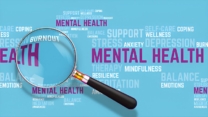
Debunking Health Myths: The Truth About Diet, Exercise, and More
Are you tired of feeling overwhelmed by a constant stream of conflicting health advice? One day, carbs are the enemy; the next, you’re told you need to go gluten-free. Social media and online trends pummel us with so-called facts that promise quick fixes, but often leave us feeling confused, discouraged, and unhealthy. It’s time to cut through the noise.
Unpacking Common Health Misconceptions
Much of the misleading wellness advice contains a small grain of truth, making it easy to believe. But as Dr. Leonor Fernandez of Harvard-affiliated Beth Israel Deaconess Medical Center points out, the real solution to health challenges lies in balance, not in a single, simple answer.
Let’s tease out the truth about these popular myths.
The Big Carbohydrate Myth
Myth: Carbs are bad and should be eliminated to lose weight.
Fact: Carbohydrates are not the enemy. They are a vital macronutrient that your body uses as its primary source of energy. For a while, I was a low-carb chic, and while I did lose weight initially, I was constantly tired and my workouts suffered. It wasn’t until I started working with registered dietitians that I learned the truth.
The weight lost on a low-carb diet is primarily water weight, not fat. When you cut carbs, your body breaks down stored carbohydrates (glycogen), which are bound to water. Once you reintroduce carbs, the water weight returns.Carbs are essential for fat metabolism. As the phrase goes, fat burns in a carbohydrate flame. Your body needs glycogen to properly break down and burn fat for energy. A balanced diet with healthy carbs actually helps you have the energy to crush your workouts and burn more fat.
The key is to differentiate between good and bad carbs:
- Good Carbs: Nutrient-rich, whole foods like quinoa, brown rice, whole-grain pasta, sweet potatoes, and fruits. These provide essential fiber and fuel.
- Bad Carbs: Processed, refined foods with added sugars, such as white bread, cakes, and cookies. These provide little nutritional value.
Why Dieting and BMI Aren’t the Answer
When we talk about debunking health myths, two of the biggest are the promise of dieting and the use of BMI as a health metric.
The Dieting Trap
Myth: Dieting leads to long-term weight loss.
Fact: Research shows that 95-98% of people who lose weight through dieting regain it within five years, with two-thirds gaining back more weight than they started with. Dieting history is actually a significant indicator of future weight gain.
Instead of a restrictive diet, a non-restrictive, sustainable eating plan is a better path to long-term health. The focus should be on building a positive relationship with food, listening to your body, and making consistent, healthy choices rather than temporary, drastic cuts.
The Problem with BMI
Myth: BMI and weight are a good indicator of health.
Fact: Body Mass Index was developed in the 1830s by an astronomer and was never intended to be an indication of individual health. While carrying excess weight can be associated with higher health risks, BMI alone is a distorted metric. Health is determined by a complex mix of metabolic, physiological, cultural, and social factors—many of which are outside of our control. What matters most is how you live, not just your body size. Staying physically and mentally active is a far better indicator of health than a number on the scale.
The Truth About Fats, Fresh Foods, and Fitness
Here’s a quick look at other pervasive health myths and the surprising facts behind them.
| Myth | Fact |
| You should avoid all fats. | Fats are essential nutrients. The key is to limit saturated fats and focus on healthy fats from avocados, nuts, and olives. |
| Fresh produce is always more nutritious. | Frozen and canned fruits and vegetables are often picked at the peak of ripeness and flash-frozen, locking in more nutrients than out-of-season fresh produce transported long distances. |
| Physical activity only counts if you do it for long periods. | Short bursts of activity—like a 10-minute walk—are very effective. You can spread out your weekly exercise goal (150 minutes of moderate activity) into short sessions throughout the week. |
| Lifting weights will make you bulk up. | Lifting weights helps you build lean muscle, which boosts your metabolism and aids in weight management. It takes intense training and specific genetics to achieve a bulky physique. |
The Dangers of Social Media and Quick Fixes
In our pursuit of a quick fix, we can fall prey to harmful advice.
Myth: Following fit and thin influencers is a good way to stay motivated.
Fact: The constant exposure to a single body ideal can be a major environmental contributor to the development of eating disorders. Social media can create unrealistic expectations and promote an unhealthy relationship with both food and your body. Instead, seek out accounts that promote body neutrality, joyful movement, and sustainable eating practices.
Myth: Detoxes and cleanses are necessary to get rid of toxins.
Fact: Your body has its own powerful detox systems—your liver, kidneys, and lungs—which naturally and efficiently remove waste. Detox products and cleanses haven’t been proven to work and can actually be dangerous, leading to nutritional deficiencies or other health issues. The best way to support your body’s natural processes is to eat a balanced, whole-foods-based diet.
Conclusion
Debunking health myths is the first step toward a healthier and happier you. The truth is, there are no shortcuts. A truly healthy life is built on a foundation of balance, consistency, and a positive relationship with your body.
Instead of chasing fads, focus on these core principles:
- Listen to your body’s needs.
- Eat a balanced, nutrient-rich diet that includes healthy carbs, fats, and proteins.
- Move your body in ways that you enjoy.
- Prioritize sleep and stress management.
By embracing these truths, you can build a sustainable lifestyle that benefits your health for the long run.
Frequently Asked Questions (FAQs)
Is it true that carbs make you gain weight?
No, carbs themselves are not fattening. They are the body’s main source of energy. The key is to choose nutrient-rich, whole-grain carbs and manage your overall calorie intake.
Can I lose weight by eliminating all fats from my diet?
You should not eliminate all fats. Healthy fats are essential nutrients. The focus should be on limiting unhealthy fats and incorporating healthy fats from sources like avocados and nuts.
Do I have to exercise for long periods for it to be effective?
No, short bursts of activity are very effective. Studies show that a total of 150 minutes of moderate activity per week can be achieved through short, 10-minute sessions throughout the day.
Is BMI a good indicator of my health?
BMI is a flawed metric. It was created for population studies, not to assess individual health. Health is a complex mix of factors, and your activity level and lifestyle are better indicators than your BMI.
Are detoxes and cleanses necessary for my body?
No, your body has its own natural and effective detoxification systems, including your liver and kidneys. Detox products are not scientifically proven to work and can sometimes be dangerous.
Do I have to give up my favorite foods to lose weight?
No, you don’t have to give up all your favorite foods. A sustainable health plan allows for small amounts of high-calorie foods as long as they fit within your total calorie goals for the day.
Do I need to be a vegetarian to be healthy?
A vegetarian diet can be healthy, but it’s not the only way. You can be healthy while eating a balanced diet that includes lean meats. The key is to manage calorie intake and ensure you are getting all the nutrients you need.












